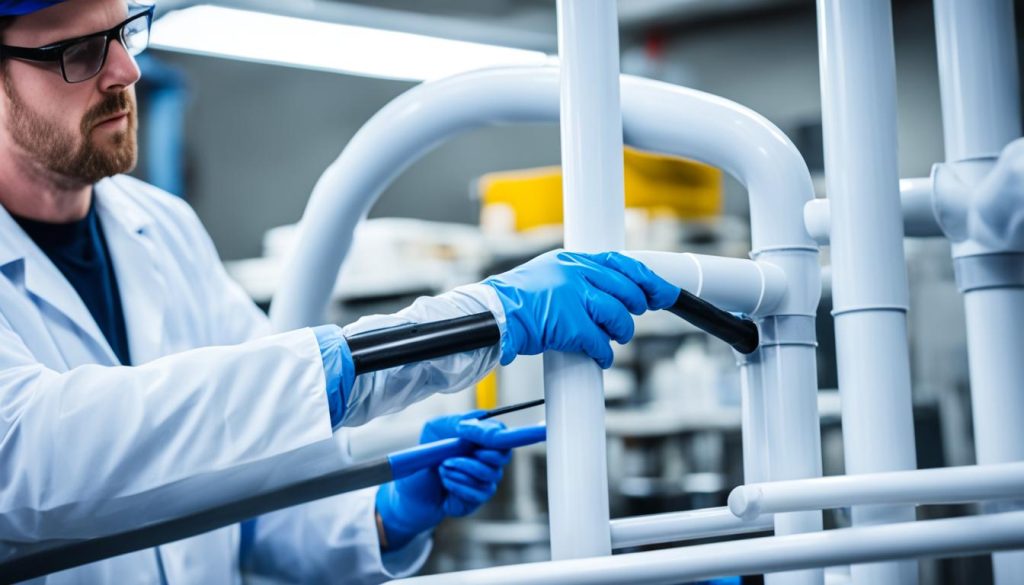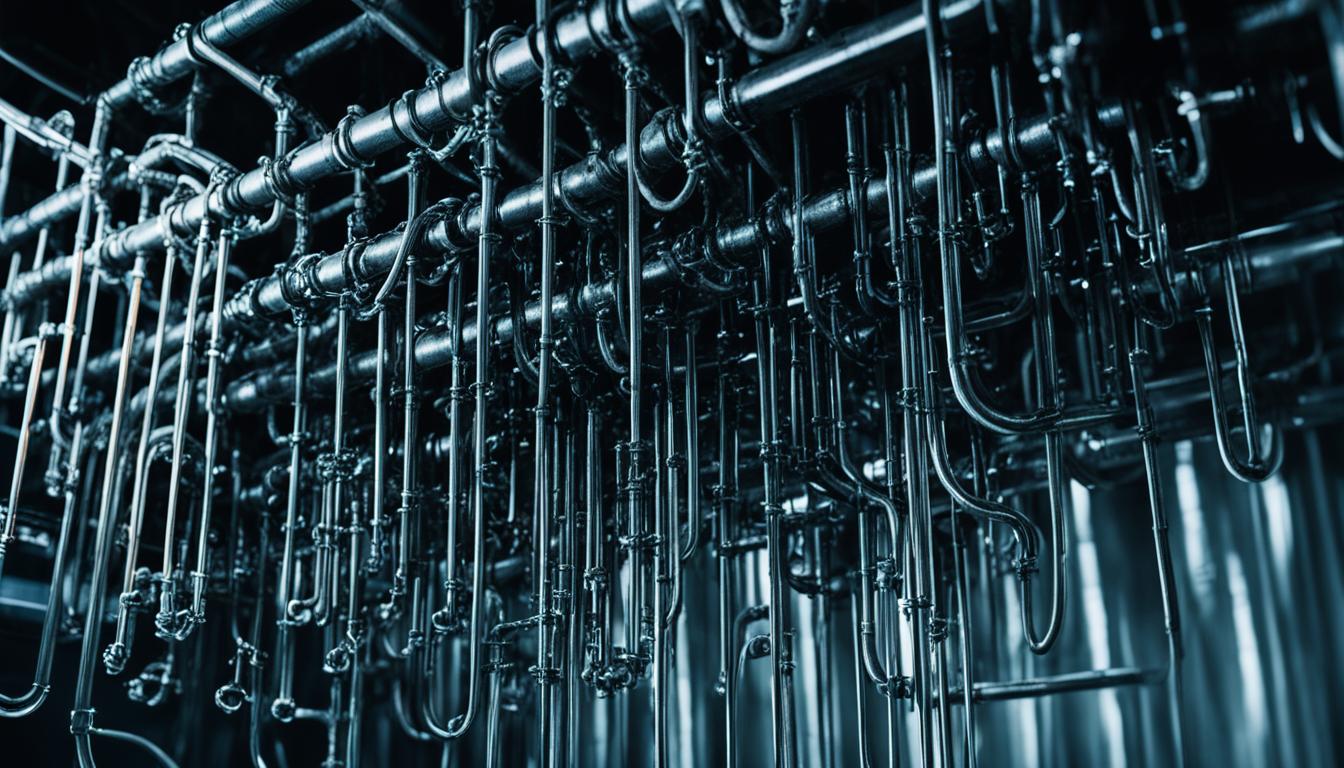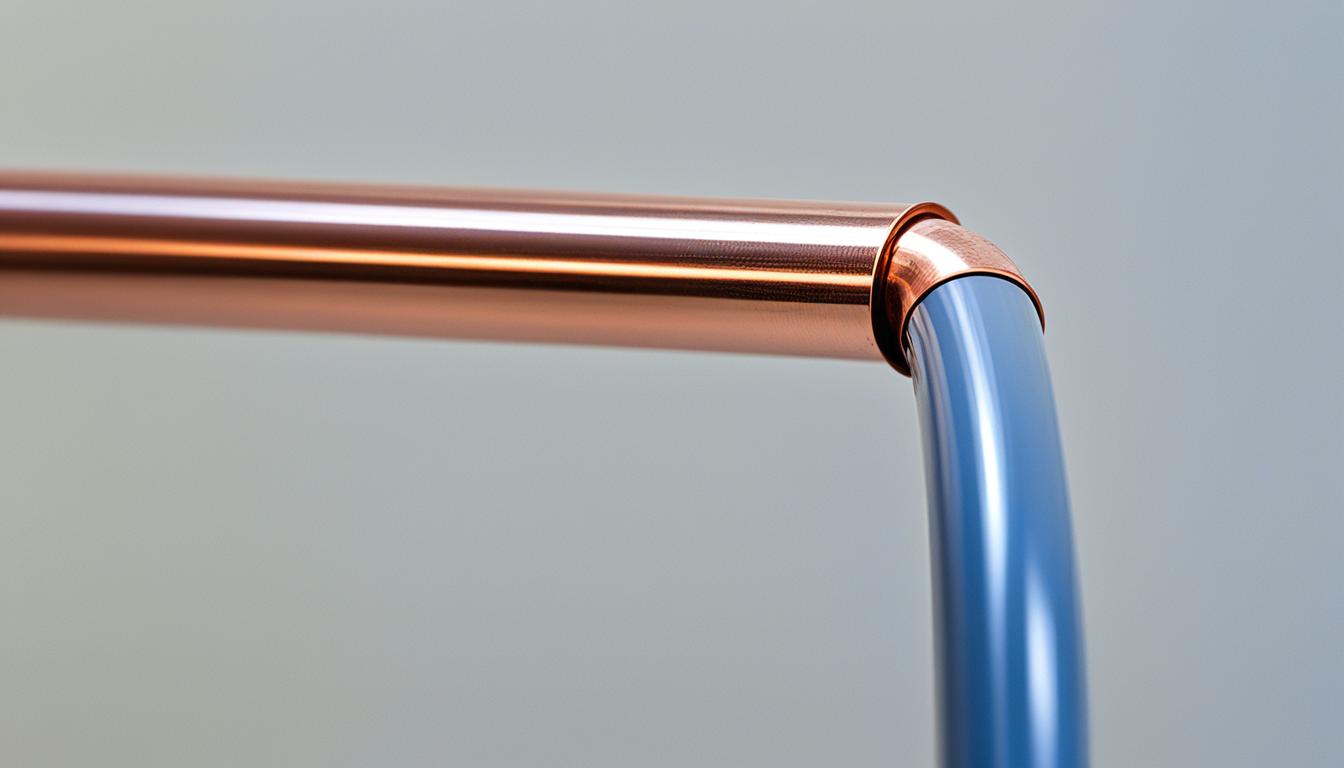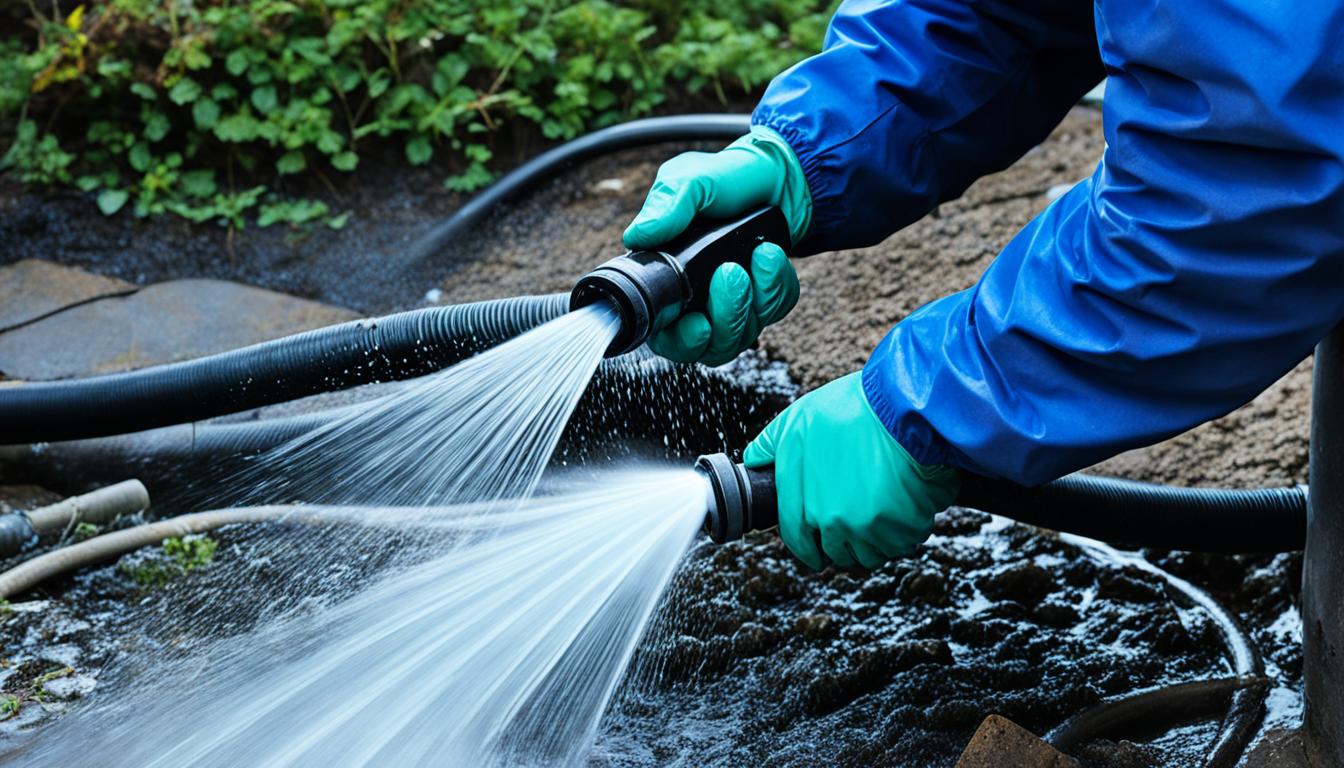PVC Pipe Lifespan: How Long Do Pipes Last?
Did you know that PVC pipes have an estimated lifespan of approximately 100 years? That’s right! These versatile pipes, made from durable polyvinyl chloride material, are designed to withstand the test of time. But how long can PVC pipes actually last? Let’s dive deeper into the factors that affect their longevity and discover how you can maximize their lifespan.
Key Takeaways:
- PVC pipes have an estimated lifespan of approximately 100 years.
- The longevity of PVC pipes can vary depending on factors such as exposure and installation.
- Proper maintenance and protection can help extend the lifespan of PVC pipes.
Factors Affecting PVC Pipe Lifespan
The durability and lifespan of PVC pipes can be influenced by various factors. One of the major factors affecting PVC pipe longevity is sun exposure. The UV rays from the sun can gradually break down the structure of PVC material, leading to brittleness and an increased risk of breakage.
To protect PVC pipes from sun damage, it is recommended to take certain measures. One effective method is to paint the exposed pipes with a light-colored latex-based paint. This helps reflect the sunlight and prevent excessive heat absorption, which can accelerate the degradation of the PVC material. Another option is to provide a covering or shelter for the exposed pipes, shielding them from direct sunlight.
By implementing these protective measures, the lifespan of PVC pipes can be extended, ensuring their durability and reliable performance over time.
Other Types of Pipe Lifespan
While PVC pipes are known for their longevity, other types of pipes also have varying lifespans. Here are the estimated lifespans of different pipe materials:
| Material | Lifespan |
|---|---|
| Copper | 70-80 years |
| Brass | 80-100 years |
| Galvanized steel | 80-100 years (may rust over time) |
| Cast iron | 80-100 years (susceptible to rust) |
| Polyvinyl chloride (PVC) | 25-40 years (recent advancements may extend lifespan to 70+ years) |
While copper and brass pipes have longer lifespans, galvanized steel, cast iron, and PVC pipes also offer significant durability. It’s important to note that environmental factors and maintenance practices can influence the longevity of pipes.
Next, we’ll explore the testing and validation processes that confirm the longevity of PVC pipes.
PVC Pipe Testing and Validation
When it comes to PVC pipe longevity, extensive testing and validation have been conducted to ensure the reliability and quality of these pipes. Various reports, including excavation and dig-up tests, have consistently shown that PVC pipes retain their strength and structural integrity even after several decades of use. These findings provide valuable insights into the long-lasting nature of PVC pipes.
One significant aspect of PVC pipe testing is assessing its mechanical properties over time. Studies have revealed that PVC pipes that have been in operation for over 35 years exhibit no significant changes in their mechanical characteristics. This means that PVC pipes maintain their original strength and durability, offering long-term resilience and performance.
The Water Research Foundation, a leading organization in water quality research, has also endorsed the longevity of PVC pipes. Based on their extensive studies, they have stated that PVC pipes can be expected to last over 100 years, as long as they are properly designed and installed. This validation from a reputable authority further confirms the durability and quality of PVC pipes.
Benefits of PVC Pipe Testing and Validation
The comprehensive testing and validation procedures performed on PVC pipes offer several benefits. Firstly, they provide assurance to consumers and industry professionals that PVC pipes undergo stringent quality control checks to ensure their longevity and performance. This enhances confidence in using PVC pipes for various applications.
Secondly, the testing and validation results enable engineers, plumbers, and construction professionals to make informed decisions regarding the suitability of PVC pipes for different projects. With the assurance of proven durability, PVC pipes can be confidently selected as a reliable and cost-effective solution for a wide range of applications.
Lastly, the validation of PVC pipe longevity through testing allows stakeholders to estimate the long-term costs associated with PVC pipe installations. Knowing that PVC pipes can last for decades without significant degradation or loss of strength helps in evaluating the overall life cycle costs and potential savings in maintenance and replacement expenses.
Overall, the extensive testing and validation conducted on PVC pipes provide substantial evidence of their long life expectancy and durability. These findings assure consumers and professionals alike of the reliability, quality, and performance of PVC pipes for a wide range of applications.
Importance of PVC Pipe Maintenance
I want to emphasize the importance of regular PVC pipe maintenance to ensure the longevity of your plumbing system. By implementing simple care practices, you can extend the lifespan of your PVC pipes and prevent potential issues.
Firstly, conducting regular inspections is crucial. By checking for any signs of damage or deterioration, you can address potential problems early on, preventing costly repairs in the future.
Furthermore, it is essential to remove any debris or burrs that may accumulate on the pipe surfaces. This ensures proper connections and prevents leaks, maintaining the integrity of your plumbing system.
During installation, using the correct amount of PVC cement is crucial. This helps prevent pipe breakage and ensures a secure and reliable connection. Additionally, protecting the exposed pipes from sun exposure and providing adequate insulation when buried underground can help prevent damage from environmental factors.
By following these maintenance practices diligently, you can maximize the lifespan of your PVC pipes, saving you time, money, and the inconvenience of potential plumbing issues.
Source Links
- https://www.smithsplumbingservice.com/blog/2019/november/how-long-will-my-pipes-last-/
- https://www.pvcfittingsonline.com/resource-center/how-long-pvc-lasts/
- https://www.uni-bell.org/Portals/0/ResourceFile/pvc-pipe-longevity-report.pdf
- Investing Wisely: How Windows & Doors in Boost Property Value and Financial Health - April 24, 2025
- The Financial Impact of Personal Injuries: Why Legal Help Matters for Business Owners - April 16, 2025
- The Hidden Financial Costs of Domestic Assault: What Business Owners Need to Know - April 16, 2025













